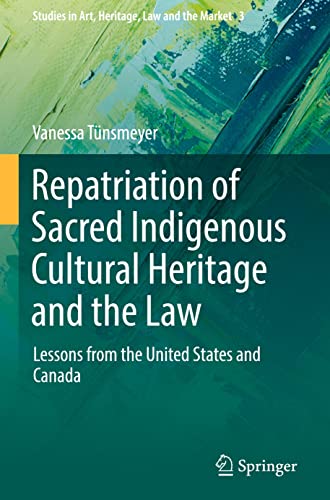

Most ebook files are in PDF format, so you can easily read them using various software such as Foxit Reader or directly on the Google Chrome browser.
Some ebook files are released by publishers in other formats such as .awz, .mobi, .epub, .fb2, etc. You may need to install specific software to read these formats on mobile/PC, such as Calibre.
Please read the tutorial at this link: https://ebookbell.com/faq
We offer FREE conversion to the popular formats you request; however, this may take some time. Therefore, right after payment, please email us, and we will try to provide the service as quickly as possible.
For some exceptional file formats or broken links (if any), please refrain from opening any disputes. Instead, email us first, and we will try to assist within a maximum of 6 hours.
EbookBell Team

4.4
42 reviewsThis book examines the ways in which law can be used to structure the return of indigenous sacred cultural heritage to indigenous communities, referred to as repatriation in this volume. In particular, it aims at developing legal structures that align repatriation with contemporary international human rights standards. To do so, it gathers the most valuable lessons learned from different repatriation laws and frameworks adopted in the United States and Canada. In both countries, very different ways of approaching repatriation have been used for several decades, highlighting the context-dependent nature of repatriation. The volume is divided into four parts, looking first at international law, then at the national legal landscape in the United States, followed by Canada, before the different repatriation models are evaluated against the backdrop of human rights law standards. Emphasis is placed not only on repatriation-specific legislation but also on the legal context in which it was developed and operates. In turn, the fourth part develops various models on the basis of these experiences that can be aligned with contemporary indigenous and cultural rights. The book ends by considering the models’ suitability for international repatriation and the lessons that can be learned from them. The primary audience includes those addressing the legal hurdles to repatriation, be they researchers, policymakers, communities, or museums.